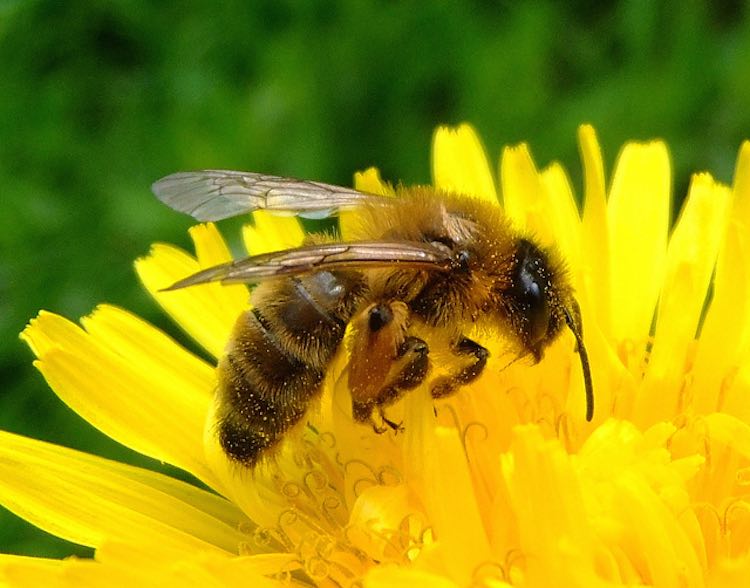Ontario is making life sweeter for honey bees. The Canadian province will become the first jurisdiction in North America to limit bee-killing neonicotinoid pesticides starting July 1.
Neonicotinoids, a class of insecticides used on nearly all corn seeds planted in the province, have been linked to disorders in bees, birds, butterflies and other pollinators, which disrupt their abilities to navigate and reproduce. While companies that make neonicotinoids claim they’re safe, beekeepers have lost up to 58 percent of their bees in recent Ontario winters.
Organizations representing both beekeepers and farmers worked with the provincial government to craft regulations to protect pollinators, which play a crucial role in our food supply.
Why Butterflies Are Swarming Thanks to Local Vineyards
Under Ontario’s news rules, farmers will only be allowed to use pesticide-coated seeds on half their acreage in the 2016 planting season. And in 2017, farmers will have to prove they have pests before they can plant any of the seeds. That is expected to reduce the number of acres planted with the neonicotinoid-coated seeds by 80%.
“Farmers care about the health of pollinators. That’s why the Ontario Federation of Agriculture has worked closely with the Government of Ontario to have these new regulatory requirements work for the province’s farmers,” said Don McCabe the group’s president.
Honey on Tap Directly From Your Beehive Without Disturbing Bees
“Assuming Ontario hits its target of an 80% reduction by 2017, this will be the most important pollinator-protection policy on the continent – and a major contributor to food security,” said a statement by officials from the Canadian Association of Physicians for the Environment.
The European Commission in 2013 banned the use of three neonicotinoids on flowering plants after the European Food Safety Authority found that exposure to the chemicals created “high acute risks” to bees.
Meanwhile, the US Environmental Protection Agency is reviewing use of the pesticides after President Obama last year established a national Pollinator Health Task Force to study the causes of colony collapse disorder. Pesticides, varroa mites, viruses, and fungi all appear to contributors to the widespread death of bees. Until the study is completed, the EPA said in March, it was unlikely to approve new uses for the class of pesticides.
Other governments aren’t waiting for definitive studies. In April, the City Council of Portland unanimously approved a ban on the use of neonicotinoid insecticides on city-owned property effective immediately.
(READ more in The Toronto Star) – Photo by orangeaurochs – CC
Spread the Sweet News about Bees (below)




















